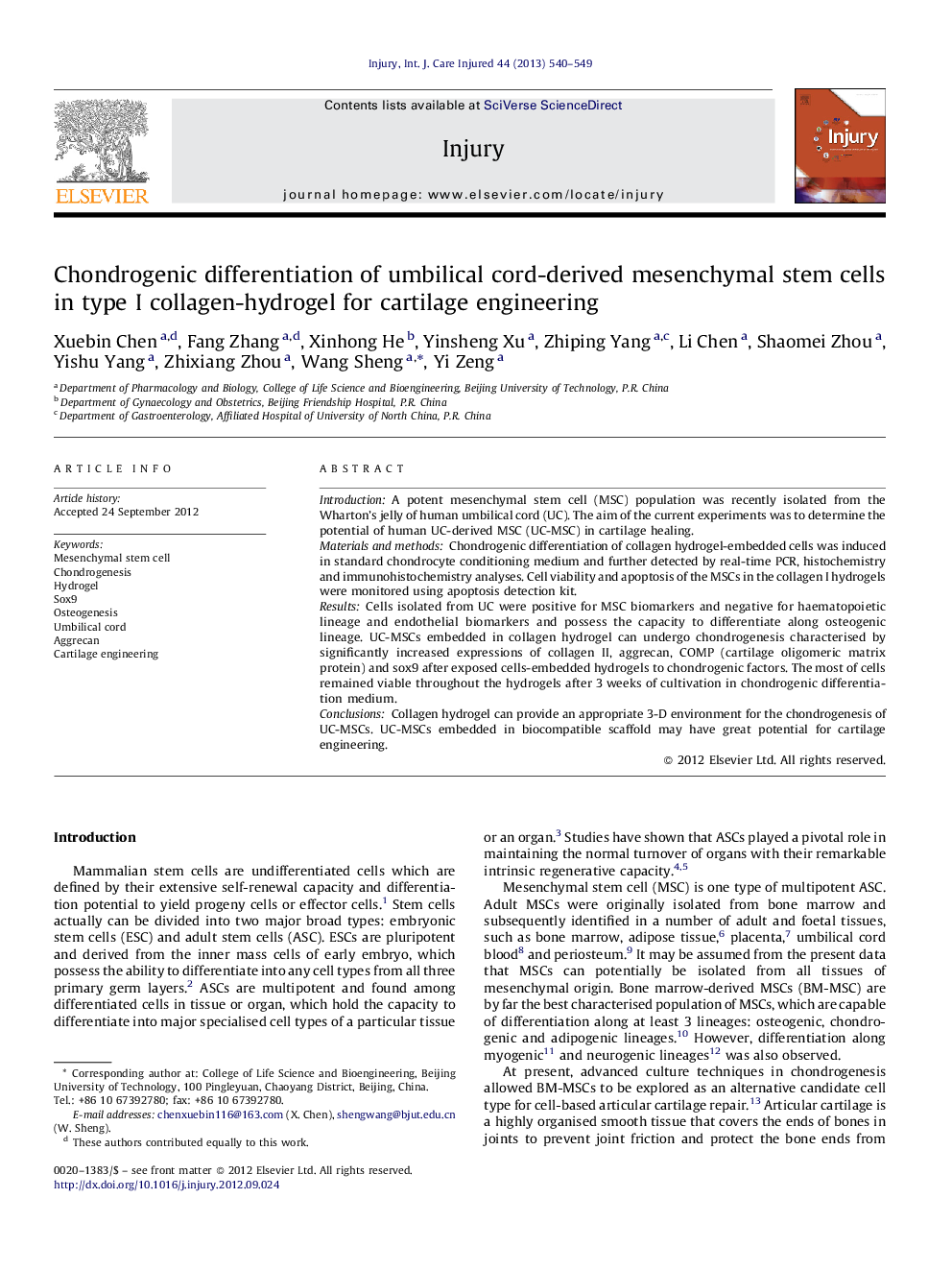| Article ID | Journal | Published Year | Pages | File Type |
|---|---|---|---|---|
| 3239458 | Injury | 2013 | 10 Pages |
IntroductionA potent mesenchymal stem cell (MSC) population was recently isolated from the Wharton's jelly of human umbilical cord (UC). The aim of the current experiments was to determine the potential of human UC-derived MSC (UC-MSC) in cartilage healing.Materials and methodsChondrogenic differentiation of collagen hydrogel-embedded cells was induced in standard chondrocyte conditioning medium and further detected by real-time PCR, histochemistry and immunohistochemistry analyses. Cell viability and apoptosis of the MSCs in the collagen I hydrogels were monitored using apoptosis detection kit.ResultsCells isolated from UC were positive for MSC biomarkers and negative for haematopoietic lineage and endothelial biomarkers and possess the capacity to differentiate along osteogenic lineage. UC-MSCs embedded in collagen hydrogel can undergo chondrogenesis characterised by significantly increased expressions of collagen II, aggrecan, COMP (cartilage oligomeric matrix protein) and sox9 after exposed cells-embedded hydrogels to chondrogenic factors. The most of cells remained viable throughout the hydrogels after 3 weeks of cultivation in chondrogenic differentiation medium.ConclusionsCollagen hydrogel can provide an appropriate 3-D environment for the chondrogenesis of UC-MSCs. UC-MSCs embedded in biocompatible scaffold may have great potential for cartilage engineering.
